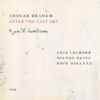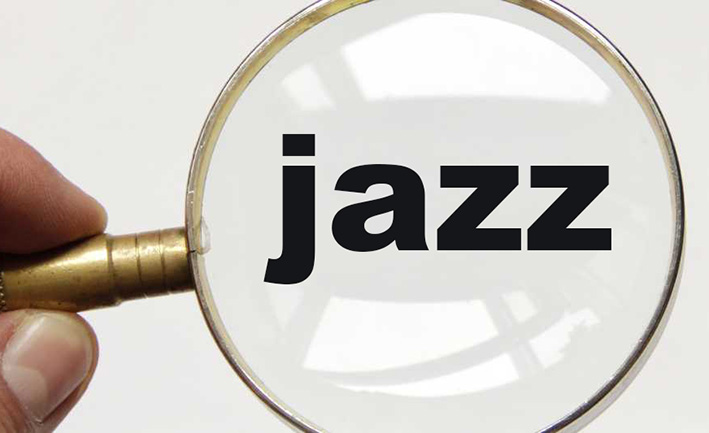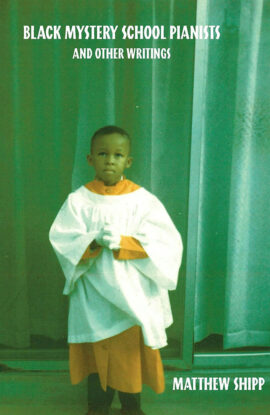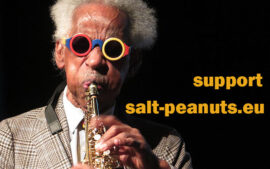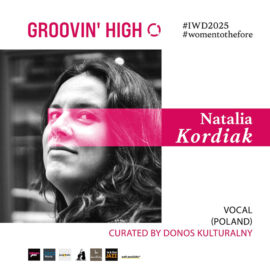The role of the reviewer can be difficult to gauge. I once asked a record label owner whether reviews made a difference. He replied it was hard to tell. Musicians seem unsure too. So, I put out an open question asking musicians, labels and venues to respond. I did not expect much back because I knew musicians who had asked the same question in the past who got almost zero response.
I asked: What is the value of reviews if any? Do they actually help? If so how, if not, why?
The response I got was surprising. To give context, I review for three columns – each with a different market and leaning towards different genres. I have had two books on jazz commissioned and published and am now on my third (my 6th book overall). For most reviews I get no payment – partly because I feel reviews should be unbiased and also because it enables me to make choices and I am able to put people who should be heard (in my opinion), in front of potential listeners. For me, I guess that justifies what I do.
I have been asked and would like to review professionally, but I do not want to be told what to write. This can be a problem when writing for magazines because notonly would they be takingon a slightly maverick reviewer but the material would not always tie in with how magazines generate income to stay afloat. The last commission I accepted was fine – until the editor tried to tell me exactly how to write – what was the point in asking me to review? It raised doubts in my mind – and a lot of questions.
Hence the question: What do reviews actually achieve?
Here are the responses from musicians, listeners, PR-companies and others.
From musicians
Overall, musicians see reviews as having value and purpose. When a musician or band release a new album they want to make some noise – they might make promo videos, media announcements of new collaborations and they also want reviews.
- Reviews offer the chance for external feedback. An independent review of your work so you see it more objectively. For bands hoping to increase their audiences, reviews are important. Some musicians believe reading how the music made an unbiased reviewer feel can make them aware of different aspects of their music (or how factors they felt were present are not apparent to an objective listener).
- Reviews are also important for festival and venue curators looking for a new band or a variation to their program. Curators need a decent line-up and if they are told about a band, reviews are one of their ports of call to gain a feel for the band’s worth. Speaking to an agent or talking to their manager will not be as objective as reviews. For PR-companies looking for bands to promote, it is important to represent clients who are likely to be successful. Here reviews are important, especially if you haven’t managed to catch them live.
- A promoter told me, «I find reviews very helpful and they have helped me decide whether to take a band or consider them for a tour.» Another told me, «I always check out reviews by particular reviewers – then I have to see the band too of course.»
- It is important to note too that the role of reviews has changed in recent years. At one time, listeners found out more about a musician or band through magazines or mainstream media. Musicians made money from selling recordings. Now it is different. Some people have told me they never pay for music because it is shared, which is a problem for musicians trying to make a living. Less money is made from recordings unless you are a mega star selling zillions of tracks online. So, some musicians rely more on money from gigs and merchandise sold at gigs. Reviewers have a changed role; they are not the only way people can get to know about a band. People can see reviews and comments left on media sites and video sites for example. They can see reactions on social media. So, is the role of the reviewer less important? For most musicians it seems not.
- Many musicians enjoy getting reviews. One told me, “Some of us really like getting reviews. Really, we do”, because they want an opinion from a reviewer they trust.
- It is important for musicians to have a healthy response to reviews as well. One musician succinctly summed it up when he said, ” I have a love/hate relationship with critics. I don’t put any stock in their opinions (good or bad), but I realize a good review can keep my band working. ”
- For PR, reviews can provide a link to the potential audience in terms of providing a stepping stone to getting work, growing a fan base, adding to the press kit. The musicians will have material to quote.
All this is cool but how do you take a bad review? Even the most successful musicians have had a bad review. Reviewers are people, they are opinionated people, so you will get good and not so good reviews. Most musicians say a bad review hurts and it can put them off their game temporarily, or make them doubt their worth but others say poor reviews make them stronger. If it is well written, they can learn and actually benefit from a less than ecstatic review. Constructive criticism in reviews can be useful.
An honest review with positive, instructive critique can help a musician understand how their music is heard by an outsider. Only once have I had a musician ask a piece to be changed when I (gently) pointed out she was flat for a phrase (because she was and it detracted from an otherwise gorgeous number) but generally, musicians understand that different people hear things differently and a review acts as feedback. Criticism can also be positive if it is constructive. For example saying the artist has more to come, is evolving and so on with backed up reasoning is good for a musician (remembering this is just opinion).
Some reviews are just nasty and say more about the reviewer than the musicians. I recently read one where the reviewer informed the readers he, personally, had never heard of this (4 times Parliamentary award winner) female musician, was not familiar with some of the tracks (2 were standards and 3 had been on her previous albums) and that the club was a ‘bit dark’ and he remembered it when it was called something else. Towards the end he added a paragraph on the gig. He didn’t enjoy himself it seems. The piece was more about the reviewer than the music and he offered no insights at all.
Considering he had not paid for his ticket, got free drinks and left after the first half when the musician in question dared to disagree with him on something (I was told this later), it was a strange read. The reader was left wondering what the gig was actually like. Another review by the same writer was openly homophobic and spent much of the review discussing his lack of familiarity with the songs (mostly standards), with a final two paragraphs on the actual recording. Good reviewers would set the scene, discuss the music and put it in context for the reader.
Overall, it seems many view reviews as a tool to help them reach a broader audience. In all cases though, musicians value review more if the writer has a way with words and the publication, whether in paper or online, has ‘clout’. They are helpful for labels and reflect their good choice of putting out a musician’s work and they can open doors to even more exposure and tours.
Some musicians do not give reviews much attention. A few say they don’t have time to read them, they have been hurt by negative ones and therefore stopped reading them. One even told me they had read a review where the reviewer showed no understanding of the music at all. The band still got gigs so the reviews – to them- are meaningless.
So, it seems the jury is split regarding musicians, though more are in favour of reviews than not.
At the end of the day, a review is an expression of opinion. It is a review, a reaction at that time, it is not the divine finger pointing and picking fault. Just a review, just an opinion and you can ignore it if you want to. We are reviewers, not God.
From listeners
The feedback from people who enjoy music was interesting. There is a scary amount of music out there with new material becoming available all the time. Although it is possible to listen to music for free, people want to own a great playlist or find new acts to see. This is where reviewers come in as a sort of curator. They can interpret the vast amount out there for the would-be buyer or audience member. Reviewers can’t cover everything though, so this also means that that there is probably some awesome material out there that we will never know about.
A reviewer with good knowledge will direct readers towards good music; they may help focus attention and even bring a different aspect or a new act to the reader. One person told me, “As a music lover first and foremost, I have bought many albums from reading reviews. Sometimes musicians/bands don’t tour or gig locally, so a review will often lead me to discovering music I may not have.”
Reviews also help listeners navigate their way through the huge amountof music out there. Adam Seiff, ex head of Jazz and Blues at Sony, once told me, «Before, record companies controlled music. Carefully chosen recorded work was released and targeted at an audience. Now it is a smorgasbord of choice so listeners can gorge themselves, taking a bit of this, a bit of that, listening for 5 minutes before changing to something else……. these ‘gatekeepers’ were taken away so now anyone with a lap top and a couple of microphones can make recordings and try to sell them.» This makes it difficult for peopleto navigate their way to the good stuff.
Reviews are considered more trustworthy than adverts and press releases because obviously what a label says about their artist or a PR company puts out about their clients are going to be positive. So, for readers, the reviewer can convey the feeling of a piece of work, the artist’s intentions and background to a recording and help the listener frame the work within the bigger picture.
Knowledgeable and well informed reviewers can introduce new listeners to more experimental music in a more meaningful way sometimes perhaps. One reader told me that if it were not for reviews, they would not have got into jazz.
The hidden sides to reviews
If you think every review you read is independent, think again. It is important to read reviews with a couple of caveats. Firstly, the reviewer is one person. Their knowledge has limits and many reviewers are not musicians. Secondly, if writing unpaid, most reviewers are going to review music they like. I turn down more requests than I review. If something does not work for me, it is maybe going to work for another writer. Paid reviews are different. A commissioned review can, in theory, be negative or positive so long as you justify your opinion but this is not always the case.
Magazines and website have staff to pay in some cases and they have websites to run. All this costs money. Most sites take adverts – either from artists promoting their music, PR-companies or maybe venues promoting their activities. This potentially brings into question whether reviews can ever be completely independent. If a label is paying for adverts on a, are they going to publish negative reviews of their artists? If a writer is paid by a PR company, will they write a negative review? If a PR-company advertises their services on a site, will the site publish a negative review of an artist the company represents?
The line maybe became blurred years back when record labels started ‘bribing’ magazines in different ways as some see it (placing large adverts for a band’s tour for example) in the magazine. Some musicians may feel that because of how magazines work, there is a sense of rewarding and promoting mediocrity. You can be ‘brilliant’, 5 star’ and ‘ a great new find’- if you can afford it.
So what about the truly talented musician who cannot afford to pay for reviews? It is then they have to hope they find a reviewer who is empathetic, who understand their music and can spot quality, but they may not. It is too glib to buy in to the commonly uttered, ‘if they are good, they will be successful’. Many talented musicians never get a break because they get lost in the crowd and reviewers miss them. However, sometimes a reviewer can bring that musician to the attention of people. They can maybe get them radio play and then, they can sit back and watch them shine, having given them the tools with which to do so.
There are ‘reviewers’ who are lazy and this is an area difficult to understand. You will see ‘reviews’ of artists which resemble each other because they are all tweaks of the EPK (Electronic Press Kit) put out by the PR company.
You can also buy a ‘good’ review. There are ‘reviewers out there who offer 5 star reviews for a high fee, 4 stars for less money and this without ever listening to the music until a contract is agreed. When my last book was out, I was approached by a rviewer who , for a sumof money woul dgive me a 5 star review, for slightly less a 3 star review. Lucily, the book got good reviews without this help but it opened my eyes to the practice. What does this do for impartiality and quality?
It is difficult for an artist to hide poor reviews. An internet search will bring up reviews, good and bad, but of course more labels/PR companies only share the positive reviews to gain momentum for their clients, so might some critics be encouraged to only write positive reviews to the increased exposure the will get as well?
The point is, read the review with awareness. As a reviewer it still comes as a surprise when you are told a magazine will run your review if you can persuade the label or musician to place an advert with them because, whilst it is perhaps understandable, it is bribery.
The importance of the reviewer
Many people told me that it is not just getting a review but also getting particular reviewers that makes a difference. Anyone can write a review. Your mate can put a review on a blog and it might be insightful and well written but unless your mate is known for their integrity and knowledge, it will not help in terms of marketing you.
Many musicians said they aim to get reviews from particular writers because they know these people get read – a lot. Some also aim for particular reviewers they know understand their kind of music . Certain reviewers, columnists and bloggers carry more weight than others due to their knowledge, listening ability and time they give a review. You are unlikely to get a re-hash of the EPK from them.
Some platforms are seen as more valuable than others. These include ( the list is not exhaustive): Something Else Reviews, free Jazz Collective, Jazz Views, Straight No Chaser, The Jazz Mann, All About Jazz and more. Within the columns, if they have multiple contributors, there are particular reviewers musicians aim for.
Sammy Stein, May 6th 2020



